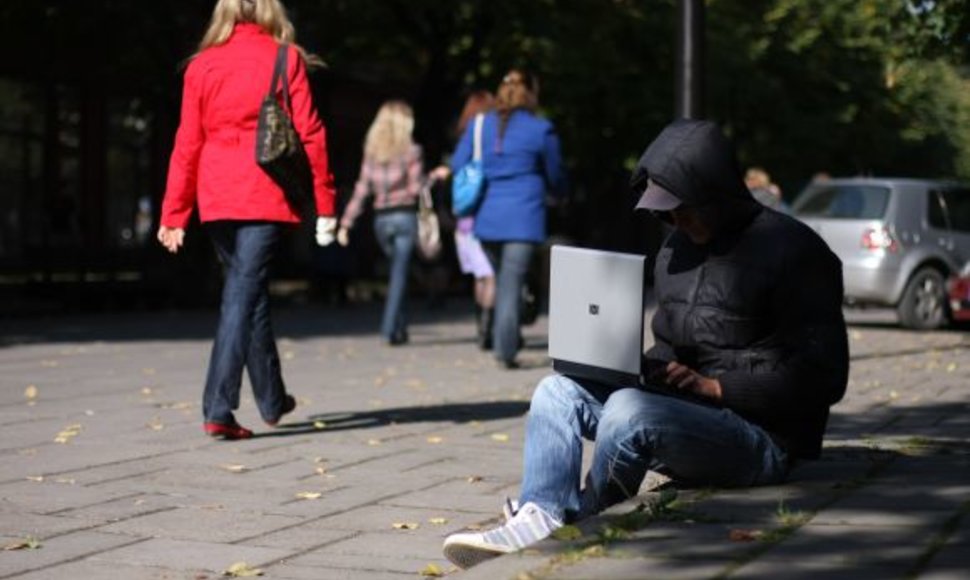Study by the European Commission suggests that over a third (34.5 percent) of Lithuanian residents routinely play on-line games, watch videos, listen to music, or view photos. The figure is well above the EU average, 25.3 percent. However, only 3 percent either sell products or services on-line or pay for on-line content or software.
700 thousand thieves
Fighters against on-line piracy claim that these figures nearly coincide with their own estimates – there might be over 700 thousand internet users in Lithuania who illegally download copies of copyrighted material.
“Lithuania hosts around 15 big torrent networks and some 60 other pirate sites. Bearing in mind that one internet user can have accounts on more than one site, these networks have about 500 thousand users. 200 thousand more use internet service providers' FTP servers,” says Vytautas Simanavičius, head of the Lithuanian Anti-Piracy Association (LANVA).
LANVA-conducted surveys have revealed that every internet user downloads on average 5 music albums a month. The resulting damage to respective musicians and distributors alone can amount to something between 5 and 25 million litas (1.5- 7 million euros) a month.
According to Simanavičius, on-line piracy in Lithuania has not changed in several past years. Even though there are increasingly more outlets to buy on-line content legally, many internet users still prefer pirate websites.
Abundance of public content
The Committee of Information Society Development (IVPK), that announced the study data, does not rush to confirm the sinister assumptions.
“The Lithuanian people are indeed quite active in terms of on-line content use, especially the youth. There is much public, legal, and free content on the internet, say, on-line news portals, e-editions of newspapers, TV channels, radio stations, Youtube and similar video-hosting sites, photo sharing sites, free music sites, etc. Also, more and more users buy content on-line,” says Ieva Žilionienė, IVPK deputy director.
Users and creators
Representatives of the Pirate Party concur that high use of internet content does not necessarily mean high levels of piracy.
“We welcome such data, since they mean that Lithuanians are technologically literate and do not shy away from employing technologies in their daily lives. We would also like to point out that as many as 25.3 percent of all internet users post their own content, well above the EU average. So they cannot be called pirates – they are authors,” says Justas Ingelevičius of the Pirate Party.
Besides, the report does not indicate what share of video and music recordings gets downloaded to users' computers and what share gets streamed from Youtube-type websites; any attempts at determining the extent of Lithuanian “piracy” are, therefore, a matter of interpretation.













